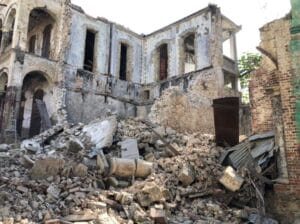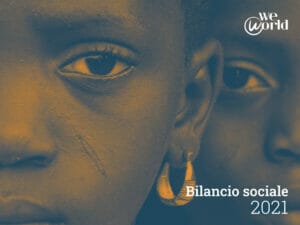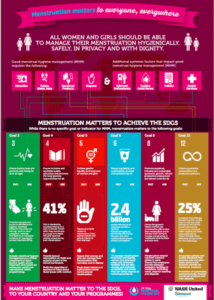
Natural disasters, extreme poverty, corruption, insecurity, and popular uprisings are just some of the factors that pour the Haitian peninsula into a state of persistent crisis.
The context
Haiti was already in a situation of institutional fragility, lack of basic services and infrastructure, vulnerability to hurricanes and tropical storms, when a magnitude 7 earthquake struck the country in January 2010. At least 220,000 people died and 350,000 were injured. Thousands of homes, civil buildings and infrastructure related to the agricultural sector were severely damaged, causing a drastic increase in food insecurity across the country. Soon after, the Artibonite, the island's main river, was contaminated by cholera, causing an epidemic that affected 600,000 people and killed 10,000.
These upheavals accentuated the already latent social crisis and, since then, the country has tried to rebuild itself without success, reaching very high levels of insecurity. Growing political instability, coupled with dissent, very high socioeconomic inequalities, inadequate social services and the scandal linked to the unveiling of the government's misappropriation of substantial public funds, have produced severe social unrests that have lasted for years. And the recurrent natural disasters only worsen the situation.
In July 2021, President Moïse was assassinated. Since then, violence and insecurity in Haiti have increased, fueled by clashes between gangs, which now control about 60% of the country. Transportation and access to food, clean water and other goods and services have been limited, as well as the population's access to humanitarian support. Haitians are victims of robbery, kidnapping, sexual violence, and murder. To escape this situation, migration flows from the island are steadily increasing.
In such a context, in August 2021, Haiti was hit once again by a 7.2 magnitude earthquake, which killed 2,248 people, injured 12,763 and 329 are still missing. 53,815 homes were destroyed and 83,770 damaged. Schools, hospitals, roads and bridges have been devastated. Drinking water distribution networks were disrupted, hindering access to water in several areas. There were also losses of crops and damage to food production infrastructure and livelihoods, especially in the Sud, Grand'Anse and Nippes regions.
Recent developments
Last September, the Prime Minister announced an increase in fuel prices, causing the intensification of protests: gangs took control of major coastal infrastructure and of the Varreux oil terminal, blocking fuel and water distribution. This situation has put the presence of aid workers on the island at risk.
In October, new cases of cholera were reported in Port-au-Prince, three years after the last outbreak. Children aged one to four, weakened by malnutrition, are the most affected. The disease is advancing, fueled by the unavailability of clean water and sanitation, while criminal gangs continue to block the passage of health workers. Efforts to control the resurgence are severely hampered. And Haiti remains in chaos, poverty and oblivion.
Our presence in Haiti
WeWorld has been present in the Central American and Caribbean region for more than 30. Since the earthquake that struck Haiti in 2010, we have been working directly in the country, with an intervention focused on post-emergency recovery, in the frame of a multi-sectoral approach and in partnership with local authorities, civil society and communities. We supported the most vulnerable families affected by the earthquake by housing 3030 displaced families in appropriate facilities; distributing emergency and agricultural production kits; strengthening natural and productive resource management capacities, especially to cope with disasters; and training people on the ground in repair and construction. We carried out infrastructural rehabilitations of water sources, which have been accompanied by awareness campaigns for their management and good hygiene practices, reaching more than 54,000 people. In addition, we have trained local associations, networks and business committees on safety.
As for the education sector, which has been also severely affected by the material and human damages of the recurrent natural disasters, we rehabilitated, equipped and reactivated school facilities with water supply systems and latrines, as well as provided school kits to students, distributed teaching materials to teachers and conducted an awareness campaign on hygiene and sexual and reproductive health.
At the civil society level, we worked to support and strengthen various local organizations through trainings, technical assistance, and the creation of networks at the municipal and regional levels to promote dialogue with local authorities. In addition, we have been engaged in supporting democratic participation and decentralization processes.
Our current intervention
Today we are engaged in the department of Artibonite, in the municipalities of Anse Rouge and Terre Neuve, with a program dedicated to improving, in a sustainable way, the food and nutrition situation caused by earthquakes, with a focus on watershed protection. We promote the strengthening of social safety nets and the resilience of the most vulnerable households through the improvement and diversification of their agricultural and food production, and the strengthening of community organizations and institutions for the prevention of malnutrition. By the end of the project, and through the work of our partners, it is expected that 8,100 producers will strengthen and protect their livelihoods through an agroecology-based approach and business creation support. 1,818 families will be supported through a social protection approach, and 4,500 women will have benefited from self-help mechanisms to facilitate their inclusion in the socioeconomic dynamics of the area. The local food and nutrition crisis prevention and management system will have been strengthened at the community level to achieve inter-communal management of natural resources for food security.
In the Haitian context, our actions aim at sustainable and inclusive development within the community, making the best use of local resources and expertise. We are and remain with the Haitians, providing them with the tools necessary to resist the natural and human crises, which are unfortunately becoming more frequent.



